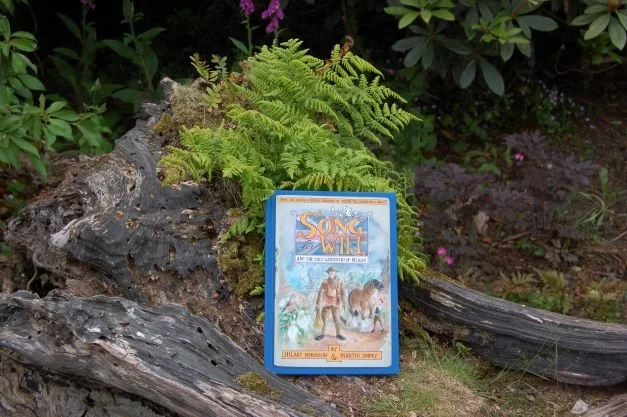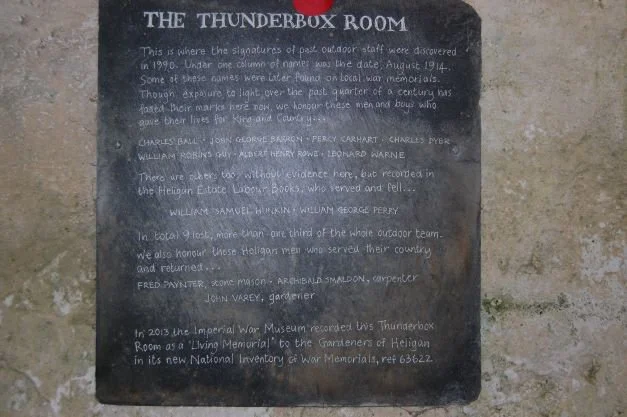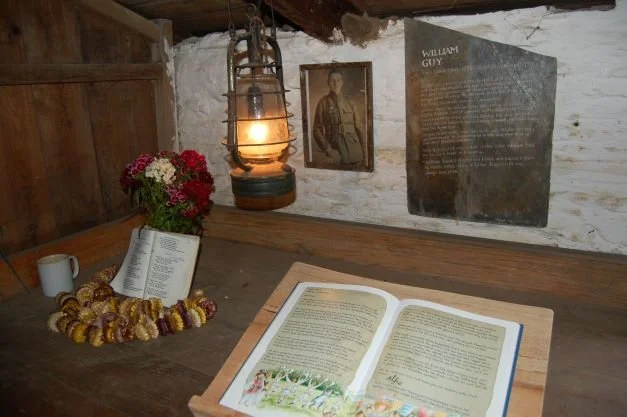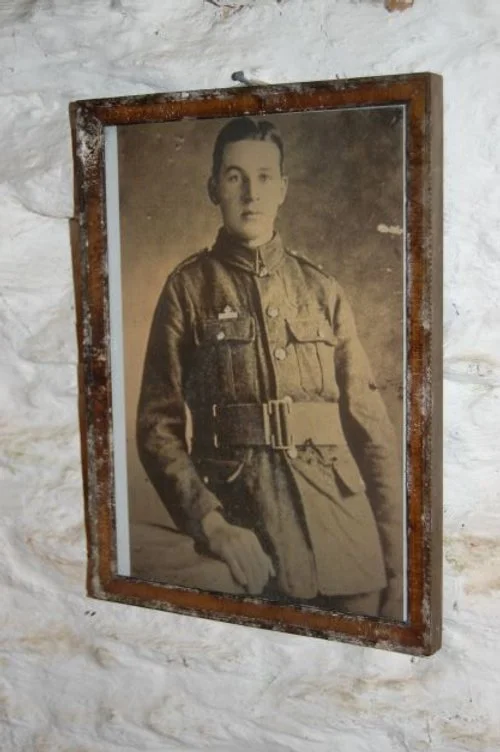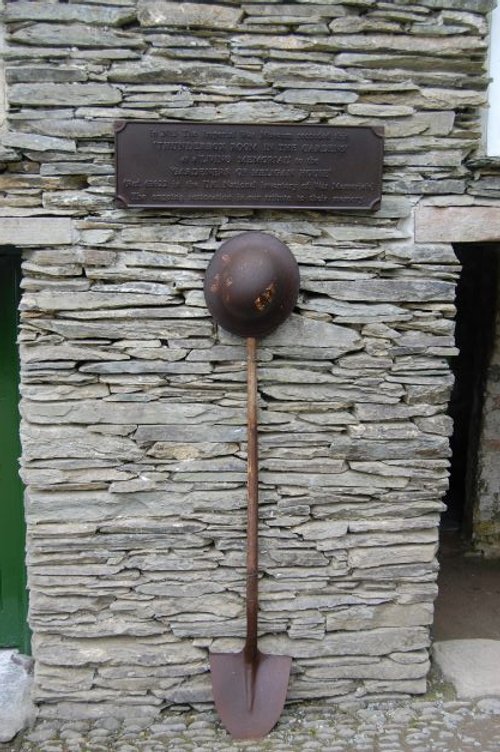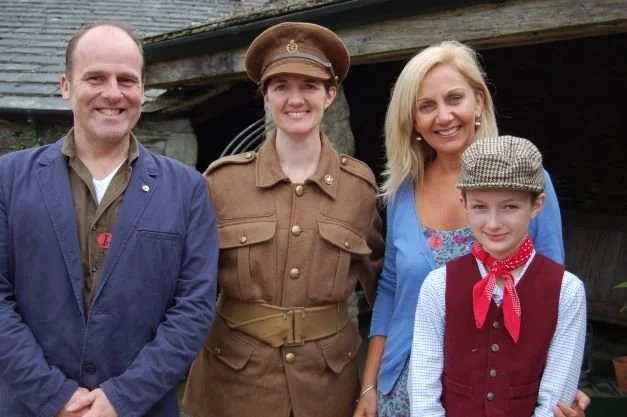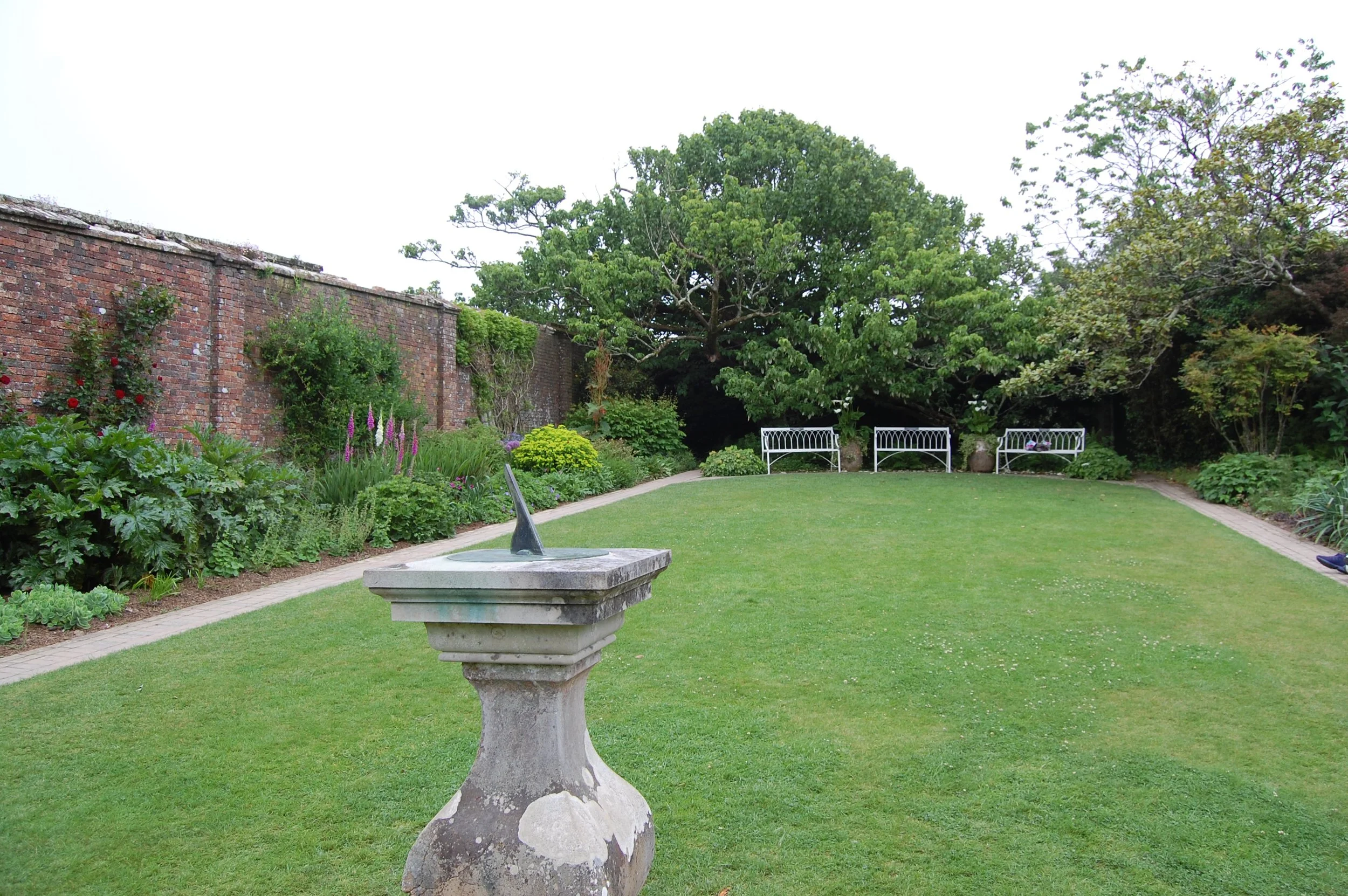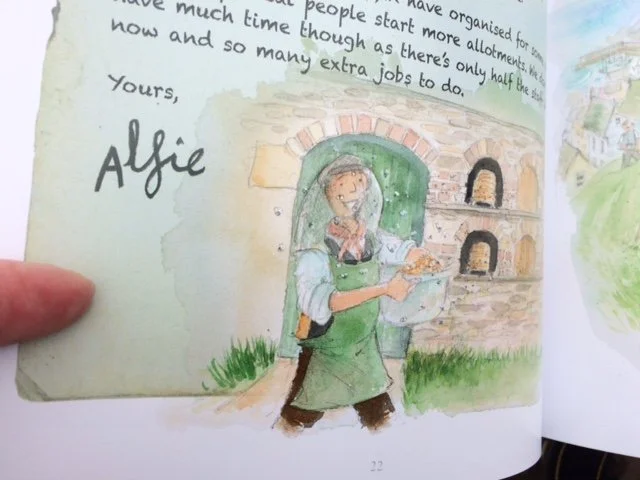A Song for Will and the Lost Gardeners of Heligan
‘A Song for Will and the Lost Gardeners of Heligan’ is one of my favourite books. Based on the lives of real people and real events, it tells the story of William Guy and the other gardeners who worked for the Tremayne family when World War One broke out. Written by Hilary Robinson and beautifully illustrated by Martin Impey, the story is told through a series of letters written between the gardeners of Heligan House during the First World War.
When war was declared in 1914, it wasn’t long before men across the country courageously volunteered or were called up to serve the war effort. The gardeners of Heligan, near Mevagissey in Cornwall, were no exception and to mark the occasion, they wrote their names upon the wall of the outdoor staff toilet (which they called the ‘Thunderbox’), as a reminder to all of their brave commitment to leave the gardens to serve king and country. Thirteen outdoor staff left Heligan to fight across the sea but only four returned. William Guy was one of the nine who never came home and this book is dedicated to his memory.
'A Song for Will' tells the story of both the changing seasons at Heligan and the effects on the gardens from the war waging abroad. The loss of livestock, changing diets due to lack of food and the developing 'make do and mend' attitudes all feature. The loss of skilled workers meant that the gardens themselves would eventually become neglected and overgrown and would not be restored to their former glory for many years. 'A Song for Will' also highlights the feelings of those bravely fighting on the battlefields, the tragic mental toll of war and sadly, the loss felt by all when loved ones did not return home. In 2013, the Imperial War Museum recorded the Thunderbox Room as a ‘living memorial’ to the gardeners of Heligan and the monument pictured below can be found nearby.
This is a poignant story, gently told, and is perfect to use in school to illustrate and investigate the effects of the First World War. I have used it very successfully on a number of occasions with excellent results in terms of engagement, understanding, empathy and written outcomes. The book could be introduced through the artefacts, plants and gardening equipment featured in the book, using role play and drama to develop scenes. The letter story telling format might inspire similar attempts to write in character. Hilary and Martin’s book contains letters between only two individuals and there were many more that left Heligan to serve both on land and at sea whose stories could also be told. Readers could keep either a diary of events and feelings whilst reading the story or imagine what characters might write in their own diaries. Children might enjoy reading the text aloud to each other or summarising sections to share.
The gardeners that served during the Great war are listed at the back of the book and a search through war records, such as those held by Ancestry, yields information about some of the individuals involved. Children I have taught have enjoyed looking at the census returns as well as army documents, developing the idea of the characters in the book as real people and engaging children with primary sources of evidence.
Finally, the book acts as the perfect guidebook to the gardens and a visit to Heligan would be an enriching and memorable experience for a class of children. I had a wonderful time when I visited for the launch of the book (picture above) and wondered at Martin’s skill as I matched scenes from the book to locations at Heligan.
Hilary and Martin have become a wonderful story writing team, detailing various aspects of the First World War through several books they have authored together. They can always be relied upon to tell the most difficult of stories with the dignity they deserve whilst maintaining an appropriate amount of detail, so as not to distress a younger audience. ‘A Song for Will’ is an incredibly special book.
A Song for Will and the Lost Gardeners of Heligan
Hilary Robinson, illustrated by Martin Impey
Strauss House Productions ISBN: 978-0957124530
